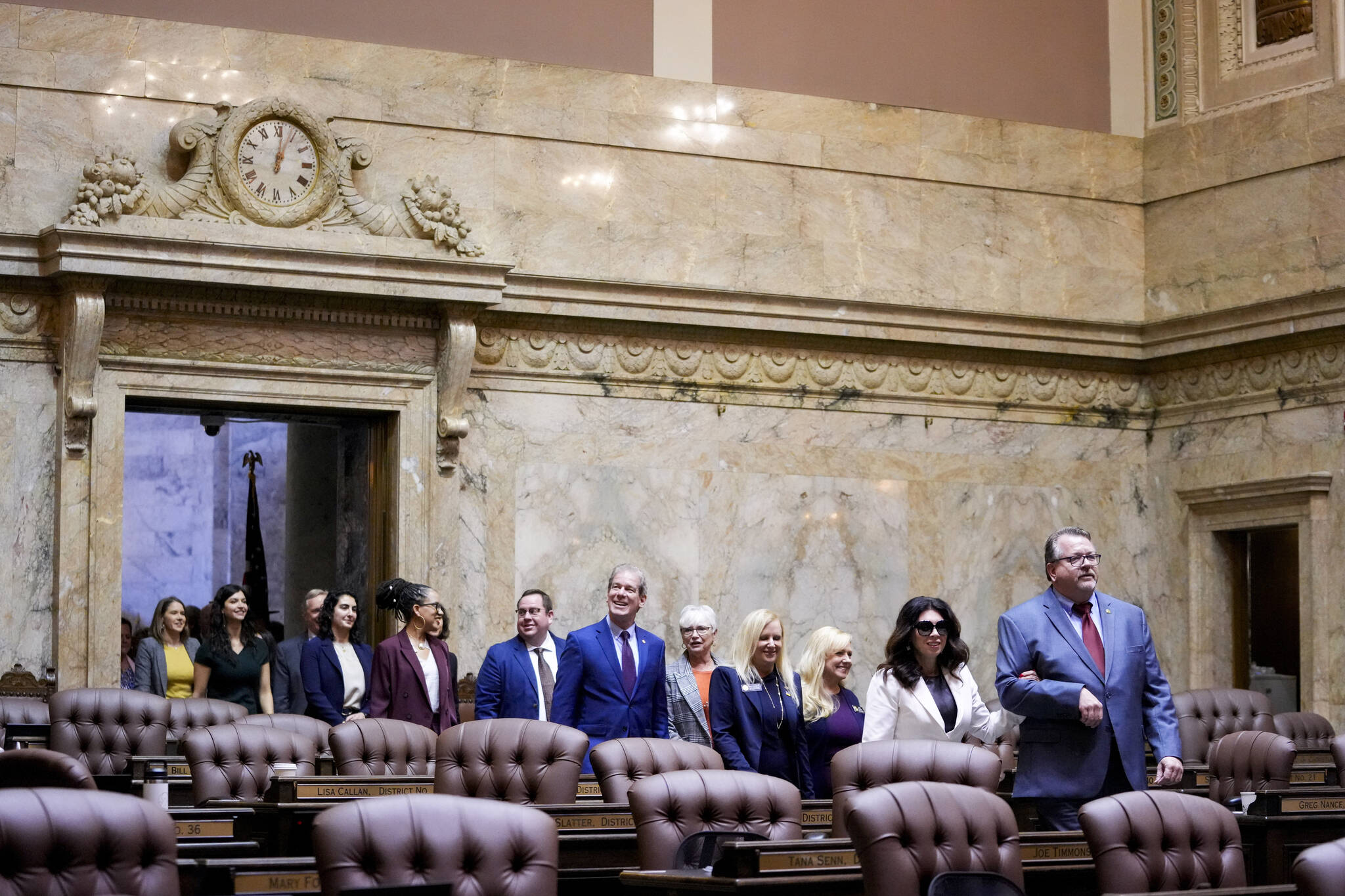OLYMPIA — Democratic House Speaker Laurie Jinkins kicked off the Washington state legislative session determined to address the housing crisis, explaining that while lawmakers made strides last year, there is plenty of work left to do.
“Across Washington, people are facing skyrocketing rents,” she told lawmakers as the 60-day session began Monday. “They are stressed, they are afraid, and they are asking for our help.”
She referenced a retired woman on a fixed income who she said had told her that her rent had increased by 70 percent in the last two years and that she didn’t know if she could afford to stay, or where she would go if she had to leave.
“We should help them with more predictability and stability,” Jinkins said. “We can’t let them down.”
The abbreviated election-year session will be a busy one in Washington as lawmakers work to sift through hundreds of bills on everything from housing to climate change and approve a supplemental budget in just 60 days.
Democrats control the House by a margin of 58-40 and the Senate by 29-20.
Speaking in Olympia in front of the Democratic-controlled House, Jinkins also brought up the rise in fentanyl deaths in the state. She urged lawmakers to expand access to treatment, boost awareness among young people and make sure opioid reversal medications are widely available.
In a follow-up speech, House Republican Leader Rep. Drew Stokesbary referenced the same challenges but offered a different approach for dealing with them.
“Just because we increasingly recognize that drug use is a health issue, more so than a criminal one, surely we can recognize that the manufacture and distribution of these deadly drugs, the people who do that do not deserve the same open hand,” he said.
He highlighted a Republican-backed proposal that would enhance penalties for the distribution of fentanyl and another that would make it a crime to expose children and vulnerable adults to the drug.
Jinkins also urged lawmakers to not go back in time on the progress the state has made when it comes to climate change.
“Washingtonians know climate change is real. They know it’s a threat. They want us to take this threat seriously. … The very air we breathe is at stake if we don’t protect our investments in a cleaner, better future for our state,” she said.
The state is one year into its Climate Commitment Act, a landmark policy that created a “cap and invest” system for carbon emissions. If a conservative-backed initiative, which is expected to end up on the November ballot, is approved, it would reverse that policy.
